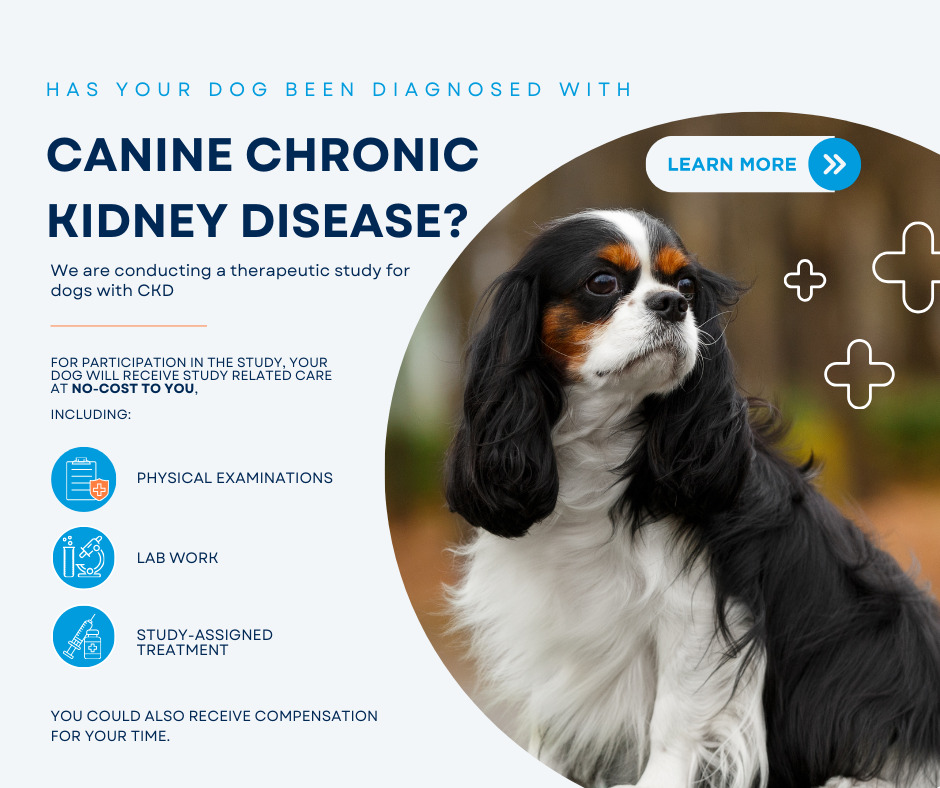Join Our Canine Chronic Kidney Disease Clinical Study
 Has your dog been diagnosed with Chronic Kidney Disease (CKD)? We understand how difficult it can be to see your dog exhibit symptoms of this condition, and we want to help.
Has your dog been diagnosed with Chronic Kidney Disease (CKD)? We understand how difficult it can be to see your dog exhibit symptoms of this condition, and we want to help.
We’re conducting a clinical trial to investigate a potential new treatment for CKD in dogs. By enrolling, your dog may receive study-related care at no cost, including:
- Cats with arthritis (screening bloodwork and x-rays are covered)
- Cats with kidney disease (screening bloodwork is covered)
- Dogs with kidney disease (screening bloodwork and urine tests are covered)
The Longevity study enrollment is closed. Please direct clients to visit www.loyal.com to register for notifications about future studies.
Additionally, if eligible, you may receive compensation for your time.
Together, we can make a positive impact on dogs nationwide and help give them the happy, healthy lives they deserve.
Enroll today and join us in our mission to provide compassionate care and advance veterinary treatment.
Contact us or visit our info page for more information:
https://pages.clinicalstudiesforpets.com/canine-chronic-kidney-disease-study-2025
Longevity Research
 We’ve partnered with Loyal, an animal health biotech company developing medications intended to help dogs live longer and maintain their quality of life as they age.
We’ve partnered with Loyal, an animal health biotech company developing medications intended to help dogs live longer and maintain their quality of life as they age.
Cobblestone Veterinary Hospital is one of 70 sites selected to help Loyal conduct a clinical study for their LOY-002 medication, a chewable, flavored daily tablet intended to help senior dogs live longer and stay healthier as they age, and we’re looking for dogs and owners interested in participating in the study.
Here’s what you need to know:
If you're interested in participating, you can call our office to schedule a complimentary visit.
- To qualify for this study, dogs must be 10 years or older, and weigh at least 14 pounds.
- Owners will be asked for documentation of their birth — suitable examples include vet records, registration papers, breeding records, adoption papers and rabies certificates.
- Dogs that participate in the study receive regular wellness visits and associated lab work at no cost for the duration of the study.
- As this study is focused on longevity, it will take place over the course of four years. There will be six visits in the first year, and then two visits each year for the rest of the study.
